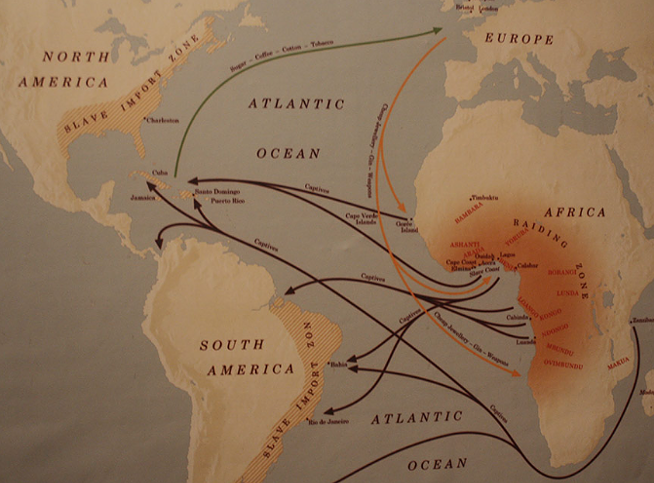The four-day Universities Studying Slavery conference that took place in Halifax Oct. 18-21 produced a resolution calling on Canada to join the Caribbean Community and Common Market political and economic union—CARICOM—in fulfilling reparatory justice through creating a National Reparations Commission.
The resolution was proposed by Dr. Sylvia D. Hamilton, filmmaker, writer and Inglis Professor Emeritus of the University of King’s College; and representatives of the Global Afrikan Congress, including its chair Cikiah Thomas. It passed unanimously on Saturday Oct. 21 at the conference’s closing session at the Black Cultural Centre of Nova Scotia in Cherry Brook. This call to action demands widespread attention in order to bring the Canadian government to the table to establish reparatory justice, in line with the work already done by the CARICOM Reparations Commission—CRC.
Delegates and conference attendees echoed a second call dispelling the myth that reparations are simply checks to individuals—reparatory justice is about comprehensive development for those whose development was stolen from them.
Says the CARICOM website, the CRC that consists of 15 Caribbean countries, five associates and eight observer countries “is a regional body created to establish the moral, ethical and legal case for the payment of reparations by the governments of all the former colonial powers and the relevant institutions of those countries, to the nations and people of the Caribbean Community for the crimes against humanity of native genocide, the trans-Atlantic slave trade and a racialized system of chattel slavery.”

CARICOM
Established in 2013, CARICOM’s Reparations Commission has created a ten-point plan towards reparatory justice, which begins with: “1. Full formal apology. The descendants of the indigenous peoples subjected to genocide, the loss of several cultures, and the erasure of numerous languages require a full and formal apology. The descendants of the enslaved African population subjected to deadly forced migration, and a system of colonialism that destroyed their bodies and their cultures, require a full and formal apology.”
USS keynote speaker Sir Hilary Beckles is chair of the CARICOM Reparations Commission. Beckles and Dr. Hamilton both delivered keynotes on Thursday, Oct. 19, and delegates Michael Heslop and Cikiah Thomas presented their work aligned with the CRC in the breakout session, “Reparations and Politics.”
Conference sessions were concurrent and schedules were packed, but threads from Thursday’s speakers proved dominant over the days that followed—popping up in critiques and questions of how to turn scholarship of slavery into action for reparatory justice. On Saturday, Oct. 21 keynote speaker H.E. David Comissiong offered a “coda” to the conference by presenting the tireless work the CRC has been doing for decades to advance global reparatory justice—including bringing other countries into the CRC fold. Delegates in the audience were inspired by Comissiong’s speech to write a resolution letter to Canada on the spot and deliver it as a surprise announcement in the final hour.
This resolution, effectively signed by the entire USS conference, moves Canada towards creating something similar to the 10-step plan the CRC has, which “outlines the path to reconciliation, truth, and justice for the victims of slavery and their descendants.”

